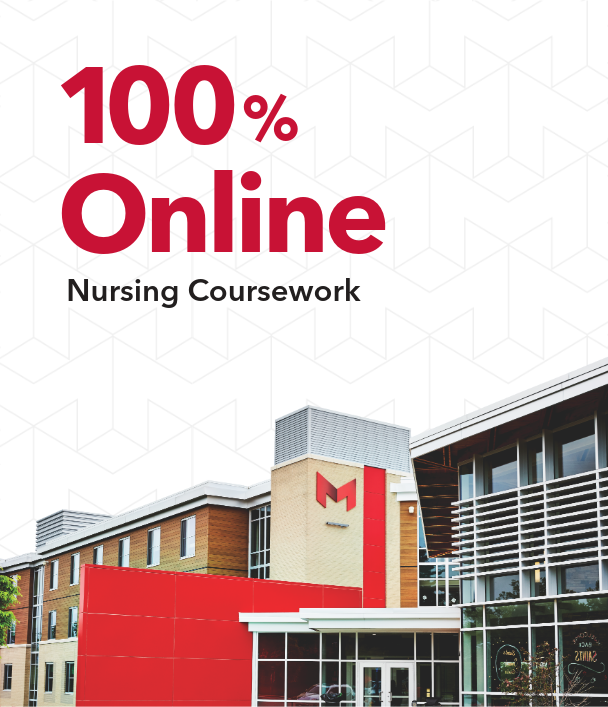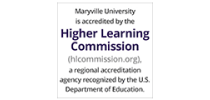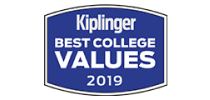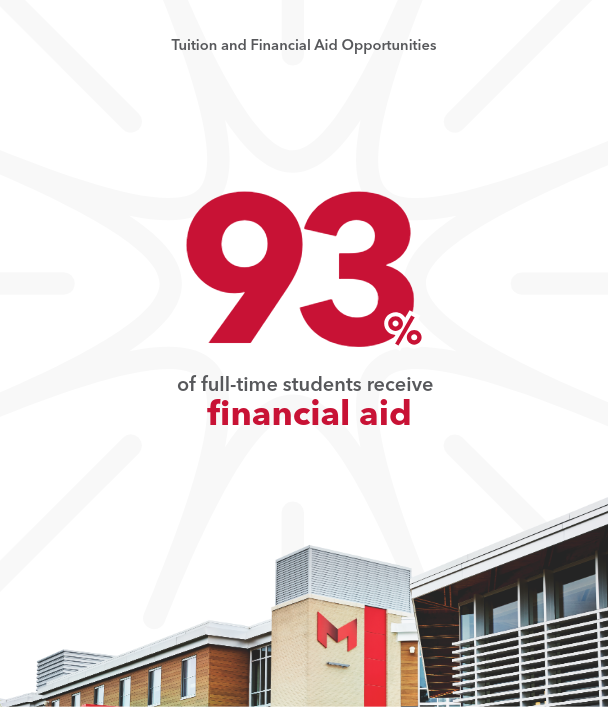Online BSN to DNP – Pediatric NP Program
Overview

Why choose Maryville’s accredited online BSN to DNP-PNP program?
- Access coursework 100% online with no campus visits required.
- Apply with no GMAT, GRE, or statistics needed.
- Earn your BSN to DNP-PNP in as few as 40 months.
- Get personalized support from application through graduation.
- Complete clinicals locally in your preferred setting.
- Enjoy no waiting list once you’re accepted.

Are you ready to take the next step in your nursing career?
Maryville University’s online BSN to DNP-Pediatric Nurse Practitioner (PNP) program is designed for experienced nurses who want to specialize in pediatric care and advance their careers to the highest level. This online program helps you achieve a terminal nursing credentials while preparing you to provide comprehensive care for infants, children, and adolescents.
Our program emphasizes advanced clinical expertise, leadership in pediatric healthcare, and evidence-based care strategies. With a focus on pediatric practice, you can develop the skills needed to manage the unique health needs of children and adolescents, including acute and chronic care.

Our online BSN to DNP Pediatric Nurse Practitioner graduates:
- Deliver specialized care for infants, children, and adolescents with diverse health needs.
- Emphasize preventative care and patient-centered pediatric health strategies.
- Lead initiatives to improve pediatric healthcare access and outcomes for families and communities.
- Serve as advocates and leaders in pediatric-focused nursing practice.
- Mentor aspiring pediatric nurse practitioners to develop the next generation of healthcare providers.

Why choose our online BSN to DNP program?
Learn directly from expert faculty and staff why Maryville’s online nursing programs stand out, and see how we can help you achieve your goals in pediatric patient care.

You can learn to lead in healthcare
The demand for pediatric nurse practitioners is growing rapidly. As healthcare evolves with new treatments, technologies, and patient needs, PNPs who specialize in the care of children are more essential than ever.
Maryville’s online BSN to DNP-PNP program is designed to prepare experienced nurses for advanced pediatric nursing roles. Gain the expertise to address the complex and evolving healthcare needs of children, adolescents, and their families.

How quickly can you earn your DNP?
As a BSN-prepared nurse, you’ve already built a strong foundation for your nursing career. Our accelerated BSN to DNP program can be completed in about 40 months, allowing you to skip the master’s degree and focus directly on becoming a pediatric nurse practitioner at the doctorate level.
Take the next step to advance your nursing career and make a lasting impact on the lives of children and their families.

Benefits of the online BSN to DNP programs:
- Graduate from a program accredited by the Commission on Collegiate Nursing Education (CCNE) with a focus on pediatric nursing care.
- Save time and money by earning your DNP without completing an MSN.
- Enjoy the flexibility of an online format that fits your busy schedule.
- Get full, personalized student support and counseling from application through graduation and beyond.
- Conduct research through clinical inquiry courses to improve outcomes in pediatric care.
- Learn from dedicated faculty with real-world experience in pediatric nursing practice.





Important dates for 2026
Program details

The Maryville online DNP-PNP program is designed to:
- Equip you to deliver advanced care for infants, children, and adolescents from birth through young adulthood
- Strengthen your knowledge of healthcare systems, leadership, advocacy, management, and administration in both clinical and nonclinical settings
- Prepare you for PNP certification and advanced roles specializing in pediatric patient care
- Meet the growing need for expert pediatric nurse practitioners across diverse healthcare settings
- Help you build expertise in evidence-based pediatric care, research, and family-focused healthcare practices

BSN to DNP-PNP: A deeper look
Our online BSN to DNP program lets you earn your DNP while completing the coursework required to sit for the PNP certification exam and become a certified pediatric nurse practitioner.
This program provides the advanced education and clinical preparation needed to care for pediatric patients. Whether you aim to expand your practice, take on leadership roles, or influence policy and education, this pathway equips you with the tools to make a meaningful difference in pediatric healthcare.

Pediatric (primary care) nurse practitioner (PNP)

DNP vs. PhD in Nursing
Nursing professionals seeking terminal degrees have two primary options: The DNP or the PhD. While the PhD emphasizes academic research and teaching, the DNP centers on clinical practice and improving healthcare outcomes.
If your goal is to enhance patient care and lead in practical, hands-on roles, the DNP is likely the ideal choice. A DNP also opens doors to leadership, education, policy, and administrative opportunities, enabling you to play a pivotal role in shaping the future of pediatric healthcare from a variety of angles and perspectives.

The field needs you now
As the demand for specialized pediatric care increases, PNPs are becoming vital to the healthcare system. Rising provider shortages, a focus on preventive care, and the unique needs of children and adolescents are driving the need for skilled pediatric nurse practitioners.
Compassionate, highly skilled professionals like you are essential to ensuring the next generation receives the expert care they deserve.

Dedicated student support from application through graduation
At Maryville, we’re committed to your success. Our online BSN to DNP-PNP program is designed with the resources and support you need to excel. From your first application to your final course, we’re here to help every step of the way.
- Personalized student support advising
- 24/7 technical help desk
- Online study and tutoring services
- Access to the library and other learning tools
Learn more about our dedicated student support coaches here.

Choose your BSN to DNP concentration
If you’d like to explore an area other than pediatrics, our BSN to DNP program features additional NP concentrations, allowing you to pursue the specialty that best matches your interests. While our PNP concentration prepares you for pediatric-focused roles, you can also explore these four other advanced practice areas.
Careers

What can you do with your BSN to DNP-PNP?
Our online BSN to DNP program is designed for nurses who want to take their careers further by specializing in pediatric care. Whether in clinical, educational, administrative, or nonclinical roles, this program equips you to lead and excel.
By earning your BSN to DNP with a Pediatric Nurse Practitioner (PNP) focus, you can prepare to deliver expert care to children, from birth through early adulthood, while driving improvements in pediatric health outcomes at the individual, family, and community levels.
DNP graduates are uniquely positioned to lead positive change in healthcare while enjoying increased earning potential. According to PayScale, DNP-prepared nurses and NPs earn approximately $9,000 more annually than those with a master’s degree.

Career prospect statistics for DNP-educated nurses and NPs
- The U.S. Bureau of Labor Statistics projects a 35% increase in advanced nursing roles, including nurse practitioners (NPs), between 2024 and 2034.
- As pediatric healthcare needs grow amid a physician and nursing shortage, PNPs will play a key role in ensuring children receive high-quality care.
- Pediatric nurse practitioner ranks among the highest-paying nursing careers, according to career resource Indeed.
- While an MSN has traditionally been the standard for NPs, organizations like the American Association of Colleges of Nursing (AACN) and the National Organization of Nurse Practitioner Faculties (NONPF) are advocating for the DNP as the new standard credential for advanced practice nursing.

Online BSN to DNP program graduates career outlook summary
Nurse practitioners specializing in pediatric care are gaining more autonomy and taking on greater responsibilities across the healthcare landscape. This shift is fueled by healthcare policy changes, a rising demand for preventative care, and staffing shortages in critical roles like physicians and nurses.
DNP-prepared pediatric nurse practitioners are uniquely qualified to address the healthcare needs of children and adolescents, from routine wellness checks to managing complex chronic conditions. With advanced expertise and leadership skills, DNP graduates are well-suited to make a meaningful impact in pediatric care and beyond.

DNP-educated nursing professionals are industry difference-makers
A DNP degree opens doors to impactful careers in pediatric healthcare and beyond. PNP-trained DNP graduates are in demand to meet the growing need for specialized pediatric care and preventative health initiatives.
In addition to clinical roles, DNPs excel in education. According to the AACN, more than 80,000 qualified nursing student applicants were recently turned away due to a lack of faculty. DNP-educated professionals are critical to filling these gaps, ensuring the next generation of pediatric care providers is well-trained and ready to serve.

What can online BSN to DNP graduates do?
With a DNP, the highest practice-focused degree in nursing, you can unlock a wide range of career opportunities. PNP-trained DNP graduates use their advanced skills in various roles, including:
- Serving as a pediatric nurse educator in academic or clinical settings
- Opening and managing a private practice focused on pediatric primary care
- Leading as an executive in pediatric healthcare administration or policy

What can online BSN to DNP graduates do?
- Advocating for children’s health and equity at local, state, or national levels
- Conducting research to improve pediatric care outcomes and protocols
- Opening an autonomous practice (24 states now permit those with a DNP to open their own clinics)

What careers can I pursue with my online BSN to DNP degree?
Find out more about DNP and DNP-NP careers here.

What careers can I pursue with my online BSN to DNP degree?
Nurses with a DNP may also explore other opportunities in the field, such as:
- Chief nurse anesthetist
- Chief nursing officer
- Director of nursing services
- Health policy analyst
- Hospital CEO
- Medical and health services manager
- Nursing manager or supervisor
- Nurse midwife
- Nursing professor

Where do BSN to DNP-PNP graduates find job opportunities?
Graduates of an online BSN to DNP program with a PNP focus are prepared to succeed in a variety of healthcare and related settings, such as:
- Colleges and universities
- Hospitals and clinics
- Long-term care facilities
- Nursing research facilities
- Pediatric nursing clinics
- Rehabilitation facilities
- Specialty practice, such as cardiology or oncology

What is the typical salary for online DNP program graduates?
As of 2025, PayScale reports that DNP-prepared professionals earn an average base salary of $115,000, with some roles offering even higher compensation and job satisfaction. The top earners report salaries of more than $131,000. These numbers represent a broad range of clinical and nonclinical DNP roles.
In clinical settings, pediatric nurse practitioners often earn higher competitive salaries. For instance, the U.S. Bureau of Labor Statistics reported a median salary of $129,000 for nurse practitioners in 2024. According to Indeed, pediatric nurse practitioners remain among the top-earning nursing specialties.

What is the typical salary for online DNP program graduates?
With a DNP, you can qualify for advanced roles with higher salaries*, whether in patient care, education, or leadership. Some specific roles include:
- Chief nursing officer (CNO): $148,000
- Clinical nurse specialist: $104,000
- Director of nursing services: $102,000
- Nurse manager: $98,000
Earn an education with a strong ROI
We’re proud to be recognized among the leaders in social mobility in our region*:
- No. 1 in social mobility among private colleges and universities in the St. Louis area
- No. 1 in lowest average debt among regional private peers
- Top 3 in St. Louis for graduation rates and early-career earnings
These rankings serve as indicators of strong ROI for our graduates — meaning your Maryville education can help you start faster and go further.
Testimonials
“The way that the curriculum is set up at Maryville, each semester built upon the previous one, so we’re learning as we go. It’s not an overwhelming process. A lot of times, that’s much like our careers are in the healthcare field. We all have something new to learn, every single day.”
— Tiffany N., graduate, Doctor of Nursing Practice
“With the DNP, it allows me to become a faculty member, or it allows me to become more understanding of research … in a clinical setting, which is huge. It gave me the self-confidence I have been looking for my whole adult life.”
— Megan J., graduate, Doctor of Nursing Practice
Study with support and graduate with confidence
Your BSN to DNP journey should fit your life — not the other way around. We empower you with all the support, advising, and resources necessary to achieve this on a schedule that works for you.
Hear from 2025 grad Ashley Davis, a BSN nurse and devoted mother of three. Her success in earning her DNP while working shows the impact of excellent faculty communication, personalized support, and a truly flexible online schedule.
Curriculum
Are you a BSN graduate eager to grow your nursing career? Our online BSN to DNP degree can help you reach your goals in nursing and pediatrics leadership.
With a curriculum focused on leadership, advanced practice, research, and decision-making, you’ll be equipped to excel at the highest levels. Courses cover essential topics like health promotion, pathophysiology, and systems leadership.
The BSN to DNP-PNP program offers three start dates — in fall, spring, or summer — and is 100% online, combining advanced master’s and doctorate courses.
How long is the accelerated BSN to DNP-PNP program?
Bachelor of Science in Nursing to Doctor of Nursing Practice (BSN to DNP) core courses
BSN to DNP core courses (56 credit hours)
This course explores focused and comprehensive health assessments in a variety of settings and patients across the lifespan. This includes development of health promotion strategies and prioritization of care.
Prerequisite: Online - NURS 611, NURS 615 Corequisite: On Ground - NURS 615
This course focuses on the pharmacological foundation for safely prescribing medical regimens of illnesses for individuals across the lifespan. Also included are illness prevention, non-pharmacological and legal implications for prescriptive authority for the nurse practitioner.
Note: Selection of appropriate therapies, patient education and evaluation parameters are stressed.
This course is designed to introduce students to the purpose, content, and methods of epidemiology and biostatistics. Students will learn to evaluate and use output from statistical computing software.
Prerequisite: NURS 710
This course is designed to explore the phenomenon of interest related to the DNP scholarly project. Students will systematically develop a project protocol that is supported by the literature and submit it for department approval.
Course objectives:
- Develop a clinical question that guides the scholarly project.
- Read critically from professional nursing literature and other related disciplines to interpret, analyze and apply current research to improve practice.
- Apply a systematic approach to address clinical problems within healthcare organizations, including outcome measures and a sustainability plan to create meaningful changes in clinical outcomes.
- Develop a protocol and submit it to the DNP council for project approval.
- Develop the first chapter of the scholarly project that includes needed sections based on the selected DNP project format.
This course is designed to emphasize an objective approach to the integration and synthesis of knowledge. Manuscript preparation and practical use of evidence are incorporated to prepare students for the design of research proposals.
Prerequisite: NURS 700 and NURS 701
This course will allow the students to design an evidence-based project that will guide clinical practice. The feasibility of conducting this initiative will be explored. Potential funding sources and budget issues will be examined. Students will apply the elements of protection of human subjects and complete the Maryville IRB.
Prerequisite: NURS 700, NURS 701, NURS 702, and NURS 703
This course is designed to expand the students knowledge of clinical project data collection and analysis of data. Students will apply integrated research concepts pertaining to the clinical project. Utilization of various methods of data analysis and data management systems will be explored. Complete project data is needed prior to the start of this course.
Prerequisite: NURS 705 and NUS 705L
This course is designed to expand the students understanding of methods of dissemination in translational research. Variables that impact the analysis of data related to the scholarly project will be examined. Implications for patients, clinical practice and the healthcare systems will be explored and findings disseminated.
Prerequisite: NURS 706
This course is designed to provide an understanding of the measurement of phenomena as it relates to the research process. Procedures for selecting, applying, and interpreting the correct statistical application to a research problem will be presented with students processing the results.
Prerequisite: NURS 700
PNP concentration curriculum (18 credit hours)
This course focuses on growth and development and milestones of pediatric patients using theories and evidence based practice. Students will learn anticipatory guidance techniques, health promotion and illness prevention concepts within the pediatric population, incorporating individual, cultural, ethnic, and spiritual preferences.
Prerequisite: NURS 611, NURS 615 and NURS 612 (may also be taken concurrently)
Corequisite: NURS 655C
This course is the first in a two-part pediatric primary care didactic sequence. In this course students will focus on acute and chronic primary health care problems of children and adolescents.
Prerequisite: NURS 611, NURS 612, NURS 615 & NURS 650
Corequisite: NURS 652 or NURS 652C
This is the first practicum course in the Pediatric Nurse Practitioner (PNP) program. Students will apply and integrate concepts presented in the NURS-651 with focus on applying knowledge and skills in pediatric primary care practice settings.
Prerequisite: NURS 650
Corequisite: NURS 651
This course is second in a two-part pediatric primary care didactic sequence. In this course students will focus on acute and chronic primary health care problems of children and adolescents.
Prerequisite: NURS 651 and NURS 652 or NURS 652C
Corequisite: NURS 654 or NURS 654C
This is the second practicum course in the Pediatric Nurse Practitioner (PNP) program. Students will apply and integrate concepts presented in the NURS 653 with focus on applying knowledge and skills in pediatric primary care practice settings.
Prerequisite: NURS 651 and NURS 652
Corequisite: NURS 653
This practicum course in the Pediatric Nurse Practitioner (PNP) program focuses on the primary care setting and the preventative well child visit. Students will apply and integrate concepts presented in the NURS 650 course with a focus on applying knowledge and skills in pediatric primary care practice settings around pediatric health promotion.
Prerequisite: NURS 612
Corequisite: NURS 650C
To ensure the best possible educational experience for our students, we may update our curriculum to reflect emerging and changing employer and industry trends. Undergraduate programs and certificates are designed to be taken at a part-time pace. Please speak to your advisor for more details.
Professional licensure and certification regulations vary from jurisdiction to jurisdiction. Students are encouraged to visit the National Council of State Boards of Nursing for the state in which they intend to practice to verify specific licensure requirements which includes ensuring the program of interest meets the licensure requirements prior to enrolling. Students may visit the professional licensure page or reach out to our team of enrollment advisors for guidance.
Admission requirements

- BSN degree from a regionally accredited institution and CCNE/ACEN/CNEA accredited nursing program
- Cumulative GPA of 3.25 on a 4.0 scale in all college work
- At least one year of professional nursing experience
- Current, unencumbered licensure as an RN in the U.S.
- Official transcripts from every post-secondary school where you earned a degree or completed any graduate-level coursework
- Transfer credit request form

Admission notes
Applicants who do not meet the minimum GPA requirement will be required to submit a personal statement explaining the low grades and outlining plans for improvement.
The acceptance of transfer credit is at the discretion of Maryville University. View our transfer credit policy here.
Maryville’s online nursing programs require students with an international education background to have their BSN from a CCNE/ACEN accredited program for the MSN and BSN-DNP programs, and their MSN from a CCNE/ACEN accredited program for the Post-Master's Certificate, DNP, and DNP-NP programs. Please reach out to an enrollment advisor for more information.
Interested in this degree?

University details
Founded in 1872 — top-rated today
Maryville University is proud to be recognized as one of America’s best colleges by U.S. News & World Report and Forbes.
At Maryville, we invite future nursing leaders to be brave and expand their potential. Let’s be brave together.
Online BSN to DNP degrees: Meet our faculty


Why should learners choose to enroll in the BSN to DNP program at Maryville?

How can nurses address issues of access to healthcare in rural communities?

What are the most important skills employers are looking for?

What advice would you give to someone studying nursing?
Frequently asked questions
Maryville’s online BSN to DNP program prepares graduates to thrive in advanced clinical, educational, and leadership roles. As a terminal degree in nursing, the DNP opens doors to top-tier positions in nursing education, healthcare administration, research, and policy development.
The Pediatric Nurse Practitioner (PNP) concentration helps equip you with the knowledge and skills to provide specialized care for children, from infancy through adolescence, in primary care and acute care settings.
According to PayScale, DNP graduates earn an average of $115,000 annually across various roles, with clinical positions often yielding higher salaries. The top 10% of pediatric nurse practitioners (PNPs) report earnings of $131,000 or more per year.
Salaries depend on factors like specialty, experience, education level, and geographic location.
As nursing roles expand to include greater responsibility and independence, a DNP provides the advanced education necessary to succeed in specialized fields. For pediatric nurse practitioners (PNPs), this degree program helps develop expertise in preventive care, managing acute and chronic conditions, patient education, and providing family-centered care for children of all ages.
A DNP also prepares PNPs for leadership roles in areas like healthcare policy, research, education, and administration. This allows graduates to shape pediatric healthcare practices and improve outcomes for younger patients.
Graduates of Maryville’s BSN to DNP program are eligible for pediatric-specific certifications, including the Pediatric Primary Care Nurse Practitioner Certification (PPCNP-BC) from the American Nurses Credentialing Center (ANCC) and the Certified Pediatric Nurse Practitioner - Primary Care (CPNP-PC) credential from the Pediatric Nursing Certification Board (PNCB).
Maryville’s NP graduates consistently achieve above-average pass rates for national certification exams across specialties.
Deciding between a BSN to DNP and an MSN depends on your career goals. The DNP is ideal for those aiming for leadership in advanced nursing practice, education, or research, while an MSN may suit RNs looking to step into or specialize as nurse practitioners.
Maryville’s BSN to DNP program offers an accelerated path, allowing you to earn your doctorate without completing an MSN first. This creates opportunities for broader roles in pediatric care, leadership, and policy. However, if your goal is focused solely on quickly advancing patient care as an NP, an MSN could be a better fit. For nurses already holding an MSN, Maryville also offers advanced DNP and DNP-NP options tailored to the next step in your career.
In addition to the PNP concentration, Maryville’s BSN to DNP program offers four other specializations for you to consider. These can help you explore other areas of nursing or further expand your skills and scope of practice.
Careers and resources


